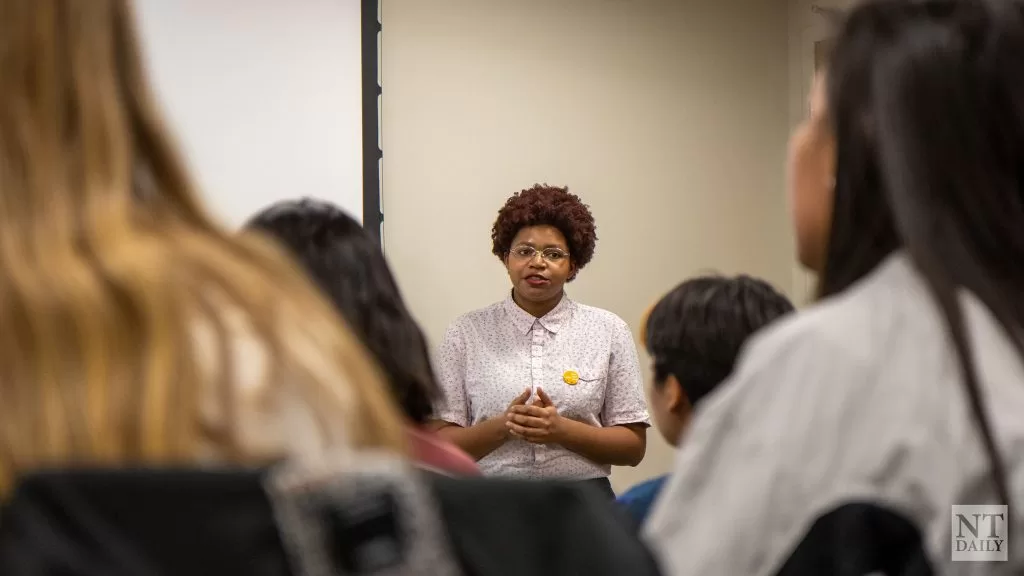The UNT Reproductive Rights Organization of Student Educators gave a presentation Tuesday night to offer community-based alternatives to calling the police and cultivate conversation around community safety.
The presentation discussed the possible repercussions of calling the police — specifically for marginalized groups — citing incidents like when Denton Police shot and killed Darius Tarver in February and possibilities of deportation for undocumented people.
ROSE suggested if a person can handle a situation, such as a noise complaint, on their own or find an alternative solution to mitigating a situation, they should choose the alternative.
“As a young black person in this country, [calling the police] was never an option,” ROSE executive member Deana Ayers said. “You have to recognize that being able to call the police and thinking that will help the situation is a privilege. [Calling the police] can lead to people being killed or in prison when they didn’t do anything to deserve it. It just makes sense to figure out what other things you can do to help people in your community without putting them in harm’s way.”
ROSE suggested some alternatives to call instead of the police, including the Denton County Mental Health and Mental Retardation hotline and the Denton County Friends of the Family crisis hotline for domestic violence and assault.
They also suggested attendees take training in drug overdose and administering Narcan with groups like O.D. Aid and Students for Sensible Drug Policy.
“[People’s] instinct is to call the police because they have the idea that police will come and fix it,” ROSE executive member Leslie Lopez said. “For communities of color or low-income communities, the police can lead to deportation. I just want people to know that when you call the police, you need to be okay with whatever repercussions happen to that individual.”
ROSE’s presentation also emphasized attendees should get to know their neighbors to better identify normal and abnormal occurrences, to better communicate issues between one another and to be able to rely on one another in times of need.
“I think a lot of people don’t really talk to members in their community,” Lopez said. “It can come down to you need to get to know your neighbors so that you can know the skills that they offer. So if someone needs first aid, you know this person can give first aid.”
Attendees also had time to discuss if they had ever called the police, when they thought it would be appropriate to call the police and their thresholds for when it is necessary to call the police.
Attendee and linguistics professor Alex Smith said he would never contact the police under any circumstances.
“Generally speaking, I view the police as more of an oppressive force than a force that’s trying to help people,” Smith said. “If you call the police, the police will end up escalating the situation and making it worse. So I think if you want to make a situation better, the worst thing to do is call the police.”
Smith said while the presentation included some alternatives to calling the police, there should be more available.
“Even the resources that are there aren’t good enough,” Smith said. “There’s just so much that needs to be done in order to replace [calling the police], so that kind of sucks. But knowing that you can take it into your own hands by forging community relationships is a positive.”
Lopez said the organization wants to continue the conversation about community alternatives and offer training for those interested.
“We want to offer this in a bigger space, with more time and more training like a workshop instead of a presentation,” Lopez said. “This meeting was meant to establish what is already known so everyone can be on the same page, but the next will be a call to action.”
Featured Image: Deana Ayers speaks to students about community alternatives to calling the police on Feb. 18, 2020. Image by Zachary Thomas

